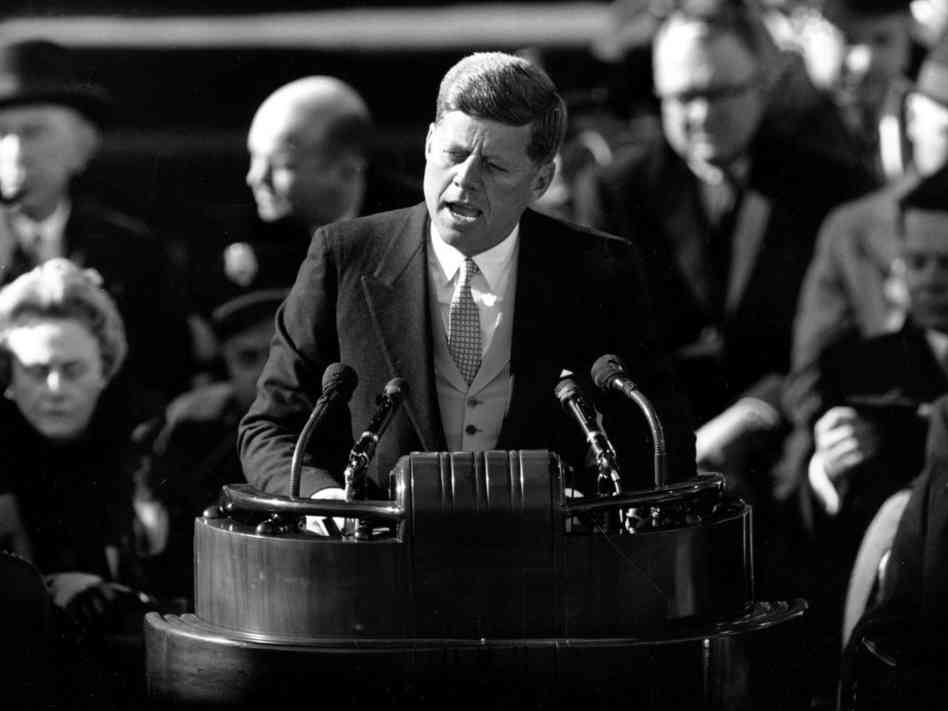All
The most recent articles, videos, blog entries, and more that have been added to ChristianUnion.org.
A Prayer and Fasting Devotional
 As we continue our season of fasting together, I want to remind us of God’s purpose for us through fasting. Listen to Jesus’ words in Mark 7:15: “Nothing that goes into a person from outside can defile him, but the things that come out of a person are what defile him. If anyone has an ear to hear, he should listen!” In verses 20-23, Jesus continues to explain this mystery to His disciples by saying: “…What comes out of a person is what defiles him. For from within, out of people’s hearts, come evil thoughts, sexual immoralities, thefts, murders, adulteries, greed, evil actions, deceit, lewdness, stinginess, blasphemy, pride and foolishness. All these evil things come from within and defile a person.”
As we continue our season of fasting together, I want to remind us of God’s purpose for us through fasting. Listen to Jesus’ words in Mark 7:15: “Nothing that goes into a person from outside can defile him, but the things that come out of a person are what defile him. If anyone has an ear to hear, he should listen!” In verses 20-23, Jesus continues to explain this mystery to His disciples by saying: “…What comes out of a person is what defiles him. For from within, out of people’s hearts, come evil thoughts, sexual immoralities, thefts, murders, adulteries, greed, evil actions, deceit, lewdness, stinginess, blasphemy, pride and foolishness. All these evil things come from within and defile a person.”A Prayer and Fasting Devotional
O LORD, my heart is not lifted up;
my eyes are not raised too high;
I do not occupy myself with things
too great and too marvelous for me.
But I have calmed and quieted my soul,
like a weaned child with its mother;
like a weaned child is my soul within me.
O Israel, hope in the LORD
from this time forth and forevermore.
- Psalm 131
my eyes are not raised too high;
I do not occupy myself with things
too great and too marvelous for me.
But I have calmed and quieted my soul,
like a weaned child with its mother;
like a weaned child is my soul within me.
O Israel, hope in the LORD
from this time forth and forevermore.
- Psalm 131
A Prayer and Fasting Devotional

Unless the Lord builds the house, those who build it labor in vain.
Unless the Lord watches over the city, the watchman stays awake in vain.
It is in vain that you rise up early and go late to rest,
Eating the bread of anxious toil; for he gives to his beloved sleep. – Psalm 127:1-2
A Prayer and Fasting Devotional
 Yesterday we looked at the three examples of patience that James uses to illustrate patience through suffering. Through these illustrations, we saw that patience is possible with the right perspective of who God is. The farmer waits expectantly for the rain, resting in God’s process. The prophets endured great suffering and humiliation, but did not seek to retaliate, looking to God as their defender and vindicator. And Job, an example of steadfastness through trial, had everything taken away, but remained true to God in His greatness. This is all well and good, you might be thinking, but how do I practically live this out when things get really hard? Let’s look carefully at the rest of the passage in James for our answer.
Yesterday we looked at the three examples of patience that James uses to illustrate patience through suffering. Through these illustrations, we saw that patience is possible with the right perspective of who God is. The farmer waits expectantly for the rain, resting in God’s process. The prophets endured great suffering and humiliation, but did not seek to retaliate, looking to God as their defender and vindicator. And Job, an example of steadfastness through trial, had everything taken away, but remained true to God in His greatness. This is all well and good, you might be thinking, but how do I practically live this out when things get really hard? Let’s look carefully at the rest of the passage in James for our answer.A Prayer and Fasting Devotional
 Back in 2013, the Red Sox and the Cardinals faced off in the World Series for the second time in 10 years. I remember being shocked to read that tickets to these final games at Fenway were selling for upwards of $1,700 a piece! A few hours before each game, however, the box office sold a limited number of tickets at just a fraction of the price. As you can imagine, die-hard fans were lined up around the Green Monster for hours, hoping for the possibility of buying a coveted World Series ticket at face value. What struck me about this article is that people are capable of incredible patience when it comes to receiving something of great value. These Red Sox fans were willing to bear the cold and miss work because the reward far exceeded the price. They were able to be patient because they had the right perspective.
Back in 2013, the Red Sox and the Cardinals faced off in the World Series for the second time in 10 years. I remember being shocked to read that tickets to these final games at Fenway were selling for upwards of $1,700 a piece! A few hours before each game, however, the box office sold a limited number of tickets at just a fraction of the price. As you can imagine, die-hard fans were lined up around the Green Monster for hours, hoping for the possibility of buying a coveted World Series ticket at face value. What struck me about this article is that people are capable of incredible patience when it comes to receiving something of great value. These Red Sox fans were willing to bear the cold and miss work because the reward far exceeded the price. They were able to be patient because they had the right perspective.A Prayer and Fasting Devotional
 Probably some of us, at one point or another, have tended toward one of two extreme attitudes toward confession. The first extreme says: “Why should I confess? My sin is paid for on the cross. I’m forgiven. I don’t need to be forgiven again!” In other words, a reliance on the finished work [1] of Jesus Christ actually becomes the basis for a belief that regular confession in the life of the Christian is not necessary. Why is this wrong? Well, it’s wrong because, simply put, we still sin:
Probably some of us, at one point or another, have tended toward one of two extreme attitudes toward confession. The first extreme says: “Why should I confess? My sin is paid for on the cross. I’m forgiven. I don’t need to be forgiven again!” In other words, a reliance on the finished work [1] of Jesus Christ actually becomes the basis for a belief that regular confession in the life of the Christian is not necessary. Why is this wrong? Well, it’s wrong because, simply put, we still sin:“If we say we have no sin, we deceive ourselves, and the truth is not in us. If we confess our sins, he is faithful and just to forgive us our sins and to cleanse us from all unrighteousness.”[1]
 Fyodor Dostoevsky’s The Brothers Karamazov is primarily a novel about the meaning of suffering. For this reason, it is fitting that Dostoevsky would choose Job as his main vehicle of philosophical thought. Job is considered the best work on suffering produced in the ancient world, chiefly because it focuses on an age-old philosophical question that remains relevant to us today: why is there suffering in the world?
Fyodor Dostoevsky’s The Brothers Karamazov is primarily a novel about the meaning of suffering. For this reason, it is fitting that Dostoevsky would choose Job as his main vehicle of philosophical thought. Job is considered the best work on suffering produced in the ancient world, chiefly because it focuses on an age-old philosophical question that remains relevant to us today: why is there suffering in the world? Dostoevsky evokes the story of Job with The Brothers Karamazov; the three titular brothers each representing something of Job himself in their differing perspectives on suffering. Ivan Karamazov, the eldest, voices what Job only hints at: some suffering is simply incomprehensible; God might not be just and righteous after all. The second brother, Alyosha, affirms with Job that God is good and suffering will be surely be redeemed. Dmitri, the third brother, surprisingly, comes closest to Job overall: neither despairing of God’s goodness entirely nor claiming to understand his circumstances. The brothers’ reflections and interactions take place against of a backdrop of sparring claims about God and the human condition: is God just? Is He loving? Is suffering a form of divine cruelty, or a powerful vehicle for God’s redemptive purposes?
A Prayer and Fasting Devotional
 “For this cause have I sent unto you Timotheus, who is my beloved son, and faithful in the Lord, who shall bring you into remembrance of my ways which be in Christ, as I teach every where in every church.” - I Corinthians 4:17
“For this cause have I sent unto you Timotheus, who is my beloved son, and faithful in the Lord, who shall bring you into remembrance of my ways which be in Christ, as I teach every where in every church.” - I Corinthians 4:17Modern academic communities place a great deal of emphasis upon cultivation of the mind—often at the expense of interest in cultivation of the heart and the accompanying character formation that an older generation of educators believed went hand-in-hand with growth in learning.
A Prayer and Fasting Devotional
A Prayer and Fasting Devotional
 On January 20, 1961, John F. Kennedy inspired the nation during his inaugural address when he said, “Ask not what your country can do for you, but what you can do for your country.” It was a rallying cry that provoked patriotism and public service in cities across America. The words spoken by JFK on that day can be echoed with a different focus today, that is, “Ask not what God can do for you but what you can do for God.”
On January 20, 1961, John F. Kennedy inspired the nation during his inaugural address when he said, “Ask not what your country can do for you, but what you can do for your country.” It was a rallying cry that provoked patriotism and public service in cities across America. The words spoken by JFK on that day can be echoed with a different focus today, that is, “Ask not what God can do for you but what you can do for God.”





